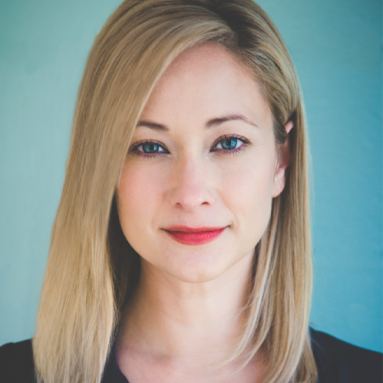Danielle Brown
Associate Teaching Professor, Practicum Education
Professor Brown specializes in trauma, mental health care, interpersonal neurobiology, EMDR and dance/movement therapy.
Danielle Brown
Associate Teaching Professor, Practicum Education
Professor Brown specializes in trauma, mental health care, interpersonal neurobiology, EMDR and dance/movement therapy.
Biography
Danielle Brown is an associate professor of social work, practicum education. Faculty since 2011, she has taught courses in practice, human behavior and mental health, and grief and loss. She currently serves as the clinical supervisor for the Trauma Recovery Center (TRC@USC).
Prior to her practicum education post, Brown was a school clinician at Vista Del Mar Child and Family Services in Los Angeles, California. In this role, she designed and supervised a practicum for Master of Social Work students from USC and UCLA.
Brown has extensive experience working with children, adolescents and adults managing severe mental illness, autism spectrum disorders, substance-use recovery, chronic pain, grief and loss, and trauma. Her clinical training includes a post-graduate fellowship at the Reiss-Davis Child Study Center in Los Angeles. She is certified in Eye Movement Desensitization and Reprocessing (EMDR) Therapy, is an approved EMDR consultant, and is a board-certified dance/movement therapist.
In her private psychotherapy practice, Brown works with individuals, groups and communities, emphasizing the importance of the body in recovering from trauma and the inherently healing nature of dance, movement and creative expression. She presents nationally and internationally on these topics in addition to trauma-informed practices in social work education.
Media
Education
University of California, Los Angeles
MSW 2004
University of California, Los Angeles
MA 2002
University of California, Santa Cruz
BA 1997
Area of Expertise
- Grief and Bereavement
- Psychodynamic Theory
- EMDR Therapy
- Social Work Education
- Psychotherapy
- Trauma
- Mental Illness
- Substance Abuse Recovery
- Social Work
- Dance/Movement Therapy
- Interpersonal Neurobiology
- Trauma-Informed Care
Industry Experience
- Training and Development
- Mental Health Care
- Health Care - Providers
- Health and Wellness
- Health Care - Services
- Education/Learning
Articles & Publications
Trauma informed interview coaching: An innovative approach to achieve social justice in field education | Simmons Field Educator Practice Digest
Beyond the online versus on-campus debate: Leveraging technology in a COI framework to enhance student and faculty presence in the MSW classroom | Journal of Teaching in Social Work
When the past is present in the classroom: Utilizing a trauma-informed approach in the virtual setting | The Transformation of Social Work Education Through Virtual Learning
